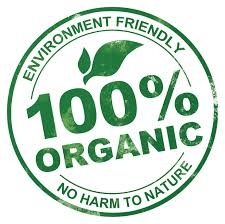

Organic Foods
- Orla O'Dwyer
Organic Produce
Organically produced fruit and vegetables are cultivated without the use of artificial fertilisers or chemicals. Consumer demand for  organic produce is on the increase with growing awareness of the possible risks associated with the over-use of chemical pesticides, growth promoters and preservatives.
organic produce is on the increase with growing awareness of the possible risks associated with the over-use of chemical pesticides, growth promoters and preservatives.
Organic produce is grown on a less intensive basis. Farming practices used must comply with organic standards for soil cultivation, fertilisers, pest, weed and disease control. Organic certification in Ireland can only be obtained from one of three organic certification organisations recognised by the Department of Agriculture, Fisheries and Food. They are:
- The Organic Farmers and Growers Association (IOFGA)
- Organic Trust Ltd
- Demeter Standards (Biodynamic Agriculture Association)
Produce that carries symbols from any of these organisations indicates that it is a good quality, organically grown produce. Organic farming is more labour intensive with lower crop yields, therefore food produced organically tends to be more expensive
TEN REASONS TO BUY ORGANIC GOOD
- STRICT STANDARDS: Organic food meets strict standards that assurre youy that the food is healthy and safe to eat
- CHEMICALS AND PESTICIDES: Organic farming does not use the chemicals and pesticides that are routinely used in non organic food production
- ANIMAL WELFARE: Animal welfare is a priority for organic farmers and all animals are reared on grassland which is entirely free of chemical fertilisers, herbicides and pesticides. Animals have free range and adequate living space and bedding so you can be assured that an organic animal has had a good life.
- HEALTHY SOIL: Organic farmers ensure that they maintain a healthy soil to pass on to future generations by incorporating methods such as rotations and adding natural fertility such as green manures or farmyard manure
- WATER QUALITY: Organic farms preserve our valuable resources as no pollutants are released into our waterways
- BIODIVERSITY: Studies have shown that organic farms support a greater number of species than non-organic farms
- ENERGY: Organic farms do not apply artificial chemicals and fertilisers which are by-products of the fossil fuel industry. Instead organic farming methods increase soil carbon and therefore reduce green house gases. Organic farming can directly contribute to reducing our emissions and therefore reducing the impact of climate change.
- GENETICALLY MODIFIED: Organic farming prohibits the use of genetically modified organisms.
- TASTE: Many people believe that organic food tastes better!
- IT'S GOOD FOR NATURE AND GOOD FOR YOU!
